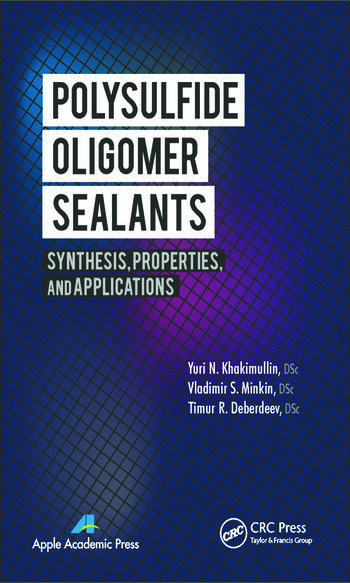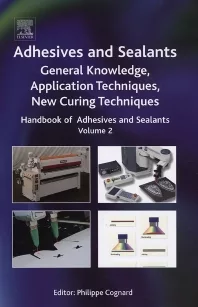Bayer MaterialScience LLC to Highlight Latest Innovations in Fast-Setting Polyurea Sealants
Bayer MaterialScience LLC has developed new,
fast-setting polyurea sealants, which feature qualities such as improved UV
stability and superior physical properties demanded in high productivity joint
filling applications. Such qualities are particularly important for settings
such as “big box” stores where hard-wheeled vehicles repeatedly pound across
the edge of concrete joints, often breaking the seams and damaging the concrete
floor.
Dr. Jay Johnston, Senior Associate Scientist, Bayer MaterialScience LLC, presented a paper on current state-of-the-art polyurea sealants and discussed new optimized formulations using commercially available amines during the Thermoset Resin Formulators Association’s (TRFA) annual meeting September, 2009, in Pittsburgh.
Johnston, who was also the conference chair, shared his findings in a presentation based upon a technical paper he co-authored with Sandy Zielinski, retired technician, Bayer MaterialScience LLC, titled Aliphatic 2-Component Polyurea and Hybrid-Polyurea-Polyurethane Sealants..
Polyurea sealants are increasingly specified in the marketplace because of their improved performance characteristics relative to competitive products. They increase productivity because they are a faster curing system and they have the ability to cure in cold conditions. These factors increase the productivity of the final applicator in terms of time to complete the job and extension of the working season. These sealants can also be used in industrial refrigerators and non-conditioned settings.
The objective of the research was to develop an aliphatic polyurea sealant that had physical properties and performance characteristics similar to aromatic polyurea sealants. Samples of aromatic polyurea sealants, aliphatic polyurea sealants and aliphatic hybrid sealants were prepared, and their physical properties were tested and evaluated. Johnston also compared the various sealants’ ultraviolet (UV) resistance, solvent resistance and low-temperature cure profiles.
Previously, first-generation polyurea sealants had one shortcoming – they would discolor when exposed to UV light. This can be partially addressed through the use of aliphatic aspartic esters in place of aromatic amines in sealant formulations. Combining aspartic ester amines with a low-monomer-content aliphatic prepolymer results in sealants with dramatically improved UV stability, as well as superior physical properties and long gel times, according to the Bayer MaterialScience researchers.
Development of an aliphatic prepolymer that can be used to prepare polyurea sealants has taken the technology one step further. Johnston explores the use of low monomer content aliphatic prepolymers to prepare sealants that exhibit minimal color change when exposed to UV light. This solution is also a considerable improvement over the use of rigid epoxy resins to protect concrete joints; the lack of flexibility in the epoxy can lead to internal stress and eventual failure of the concrete slab.
“The improved UV stability is achieved without sacrificing the sealant’s other physical properties. The use of an all aliphatic sealant is especially ideal for applications where aesthetic qualities of the sealant are important,” said Johnston, noting that overall, the polyurea sealants demonstrated superior technological performance over competitive products, making them the material of choice for applications requiring high productivity joint filling.
Bayer MaterialScience LLC is one of the leading producers of polymers and high-performance plastics in North America and is part of the global Bayer MaterialScience business with nearly 15,100 employees at 30 sites around the world and 2008 sales of 9.7 billion euros. Business activities are focused on the manufacture of high-tech polymer materials and the development of innovative solutions for products used in many areas of daily life. The main segments served are the automotive, electrical and electronics, construction, medical, and sports and leisure industries.
For more information about Bayer MaterialScience’s coatings and sealants technologies, call 412/777.3983, e-mail naftainfo@bayerbms.com or visit www.bayermaterialsciencenafta.com.
Dr. Jay Johnston, Senior Associate Scientist, Bayer MaterialScience LLC, presented a paper on current state-of-the-art polyurea sealants and discussed new optimized formulations using commercially available amines during the Thermoset Resin Formulators Association’s (TRFA) annual meeting September, 2009, in Pittsburgh.
Johnston, who was also the conference chair, shared his findings in a presentation based upon a technical paper he co-authored with Sandy Zielinski, retired technician, Bayer MaterialScience LLC, titled Aliphatic 2-Component Polyurea and Hybrid-Polyurea-Polyurethane Sealants..
Polyurea sealants are increasingly specified in the marketplace because of their improved performance characteristics relative to competitive products. They increase productivity because they are a faster curing system and they have the ability to cure in cold conditions. These factors increase the productivity of the final applicator in terms of time to complete the job and extension of the working season. These sealants can also be used in industrial refrigerators and non-conditioned settings.
The objective of the research was to develop an aliphatic polyurea sealant that had physical properties and performance characteristics similar to aromatic polyurea sealants. Samples of aromatic polyurea sealants, aliphatic polyurea sealants and aliphatic hybrid sealants were prepared, and their physical properties were tested and evaluated. Johnston also compared the various sealants’ ultraviolet (UV) resistance, solvent resistance and low-temperature cure profiles.
Previously, first-generation polyurea sealants had one shortcoming – they would discolor when exposed to UV light. This can be partially addressed through the use of aliphatic aspartic esters in place of aromatic amines in sealant formulations. Combining aspartic ester amines with a low-monomer-content aliphatic prepolymer results in sealants with dramatically improved UV stability, as well as superior physical properties and long gel times, according to the Bayer MaterialScience researchers.
Development of an aliphatic prepolymer that can be used to prepare polyurea sealants has taken the technology one step further. Johnston explores the use of low monomer content aliphatic prepolymers to prepare sealants that exhibit minimal color change when exposed to UV light. This solution is also a considerable improvement over the use of rigid epoxy resins to protect concrete joints; the lack of flexibility in the epoxy can lead to internal stress and eventual failure of the concrete slab.
“The improved UV stability is achieved without sacrificing the sealant’s other physical properties. The use of an all aliphatic sealant is especially ideal for applications where aesthetic qualities of the sealant are important,” said Johnston, noting that overall, the polyurea sealants demonstrated superior technological performance over competitive products, making them the material of choice for applications requiring high productivity joint filling.
Bayer MaterialScience LLC is one of the leading producers of polymers and high-performance plastics in North America and is part of the global Bayer MaterialScience business with nearly 15,100 employees at 30 sites around the world and 2008 sales of 9.7 billion euros. Business activities are focused on the manufacture of high-tech polymer materials and the development of innovative solutions for products used in many areas of daily life. The main segments served are the automotive, electrical and electronics, construction, medical, and sports and leisure industries.
For more information about Bayer MaterialScience’s coatings and sealants technologies, call 412/777.3983, e-mail naftainfo@bayerbms.com or visit www.bayermaterialsciencenafta.com.
Looking for a reprint of this article?
From high-res PDFs to custom plaques, order your copy today!





